Kitchen Science Experiments for Kids
This post may contain affiliate links.
The kitchen is one of the most fun places to experiment and learn about science! Check out these SUPER cool kitchen science experiments for kids and try a few in your kitchen. Some of these are edible food experiments and some just use regular kitchen pantry items that you likely have on hand. Did you know I studied food science in school & then taught it for a few years? I love all kinds of food and kitchen science activities.
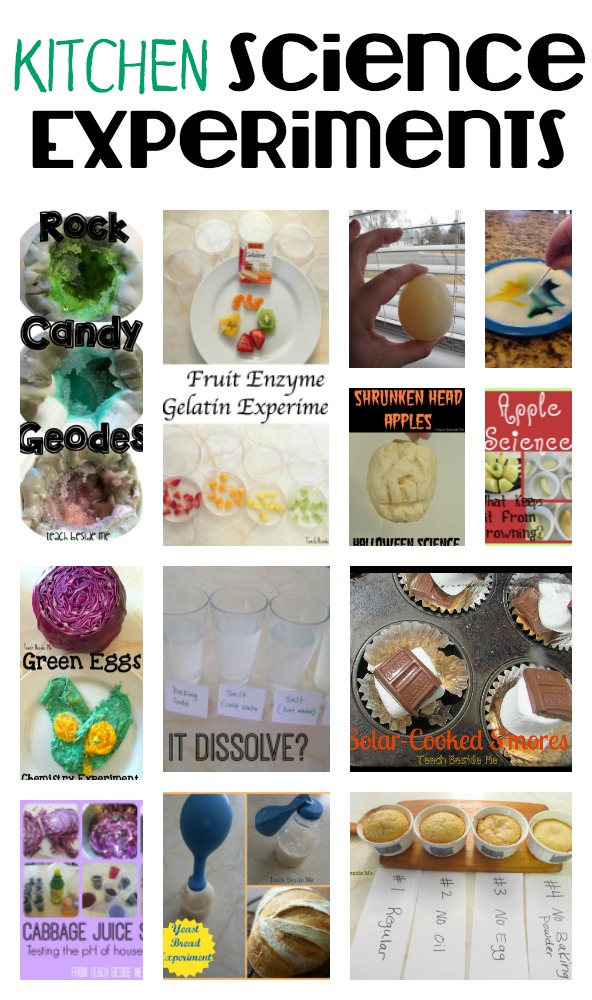
Science is used in the kitchen in so many ways! These experiments will get your kids excited about the science and chemistry behind everyday items in your house. Plus, they can learn some baking tips, too!
If you love Kitchen Science check out my STEAM Kids in the Kitchen book. It has 70+ STEM activities, projects and experiments that can be done in the kitchen or with food-related ingredients.

An awesome food science activity is making bread. I love to make homemade bread. This is kitchen chemistry at its best!
I wanted my kids to understand how yeast works to make the bread rise, so we did a little experiment with it. You know the one with baking soda & vinegar that blows up a balloon, right? Well, this is like that, but you use yeast instead. It isn’t quite as exciting & dramatic because it blows the balloon up slowly as the yeast proofs, but it was a great visual for my kids to see how it works and why.

To do this, just use a water bottle and put in warm water- about 1/2 c., 1 Tbsp of yeast, and 1 Tbsp of sugar. Shake it gently so it mixes together. Place a balloon over the top of the bottle and watch what happens!
Make some bread dough at the same time. Help your kids see how the the yeast works to make the bread dough rise. Plus, you get some delicious bread to eat at the end. Here is my family’s favorite bread recipe!
Also Try our Bread in a Bag Experiment!
More COOL Kitchen Science Experiments:
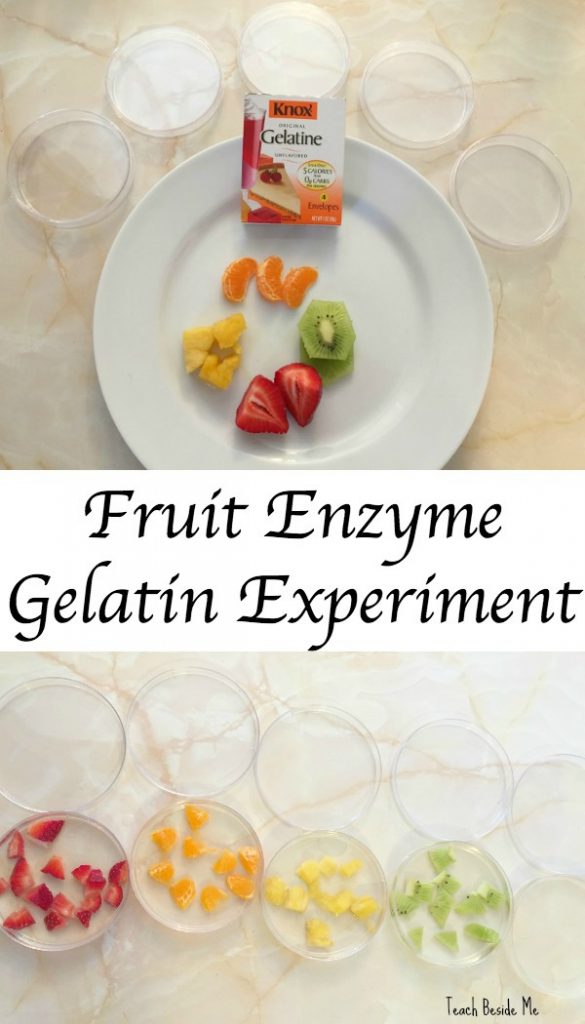
Gelatin Fruit Enzyme Experiment– see which fruits prevent gelatin from setting up.
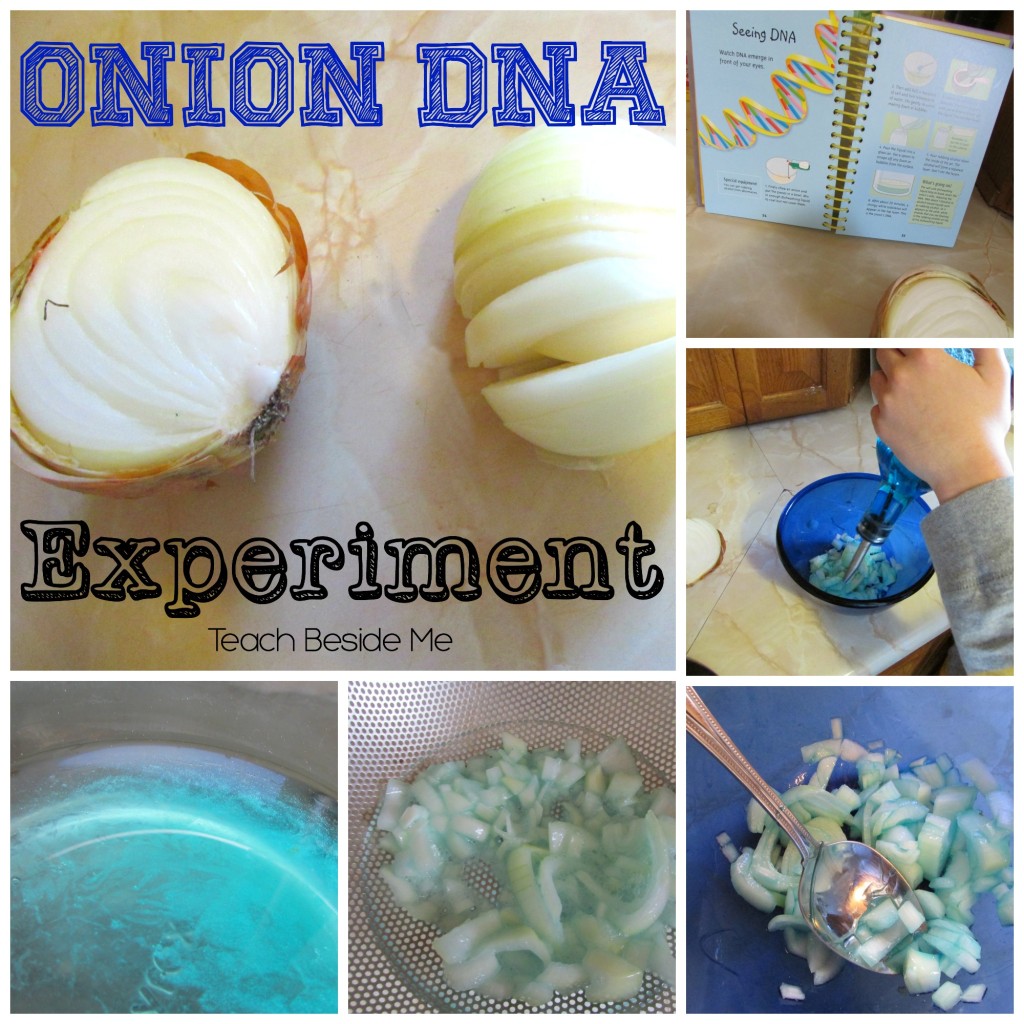
Try a food chemistry experiment: Learn how to see the DNA in an Onion! You’ll need some dish soap for this experiment.

Apple Browning Science Experiment– do you know why apples brown? Learn all about it in this post! Use the scientific method to discover what common kitchen ingredients can prevent them from browning.

Rock Candy Geodes are a super cool food science activity- delicious, to eat, too! The outside is made from homemade fondant and the inside crystal is a sugar water concoction that forms into sugar crystals.

Cross-Curricular Kitchen Lessons– how to learn all subjects through activities in the kitchen!

Cabbage Juice Science– Create a kitchen science lab and test the pH of household items with this cool chemical reaction.

Does it Dissolve?– Try this experiment to see which things dissolve in water.
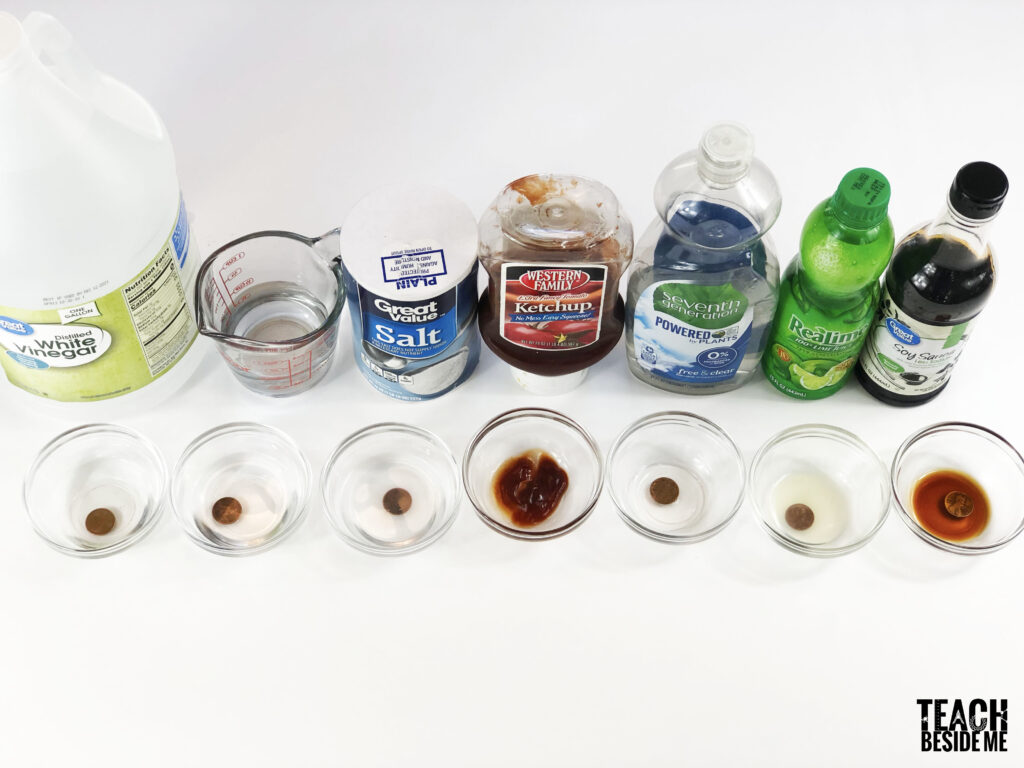
Cleaning Pennies- use some common household ingredients from your kitchen to see which one leans your pennies the best.

Making Juicy Noodles– you can eat these juice strings, too! What a fun experiment to try! Kids love making and tasting these.
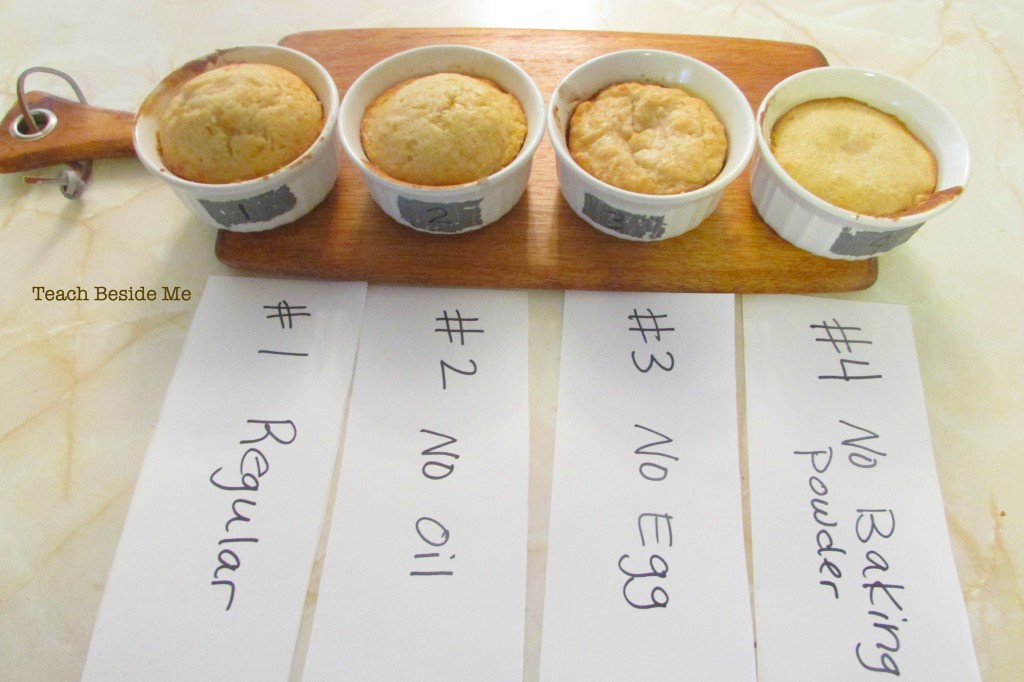
Cake Experiment– yummy and fascinating! What happens if you leave out certain ingredients?

How to Make Butter in a Jar is a fun one to do with a group of kids or at home. It’s cool to see how butter forms and learn why!

Green Eggs Experiment– No food coloring was used to color these eggs? It’s all a chemical reaction made from simple foods.

Solar Cooking– S’Mores- I LOVE the science experiments that end in a delicious edible product.

Play Anatomy Lab– use gelatin and create an anatomy lab with gelatin molds! These are made with plain gelatin, but you could definitely make them edible with regular Jello!
Rubber Egg Experiment– make a squishy egg!
Rainbow Milk Experiment– this classic science project is so fun to watch!!

Shrunken Head Apples– we did this at halloween time, but it is a fun educational activity for kids any time of the year!

Microwave your marshmallows! and watch them grow!
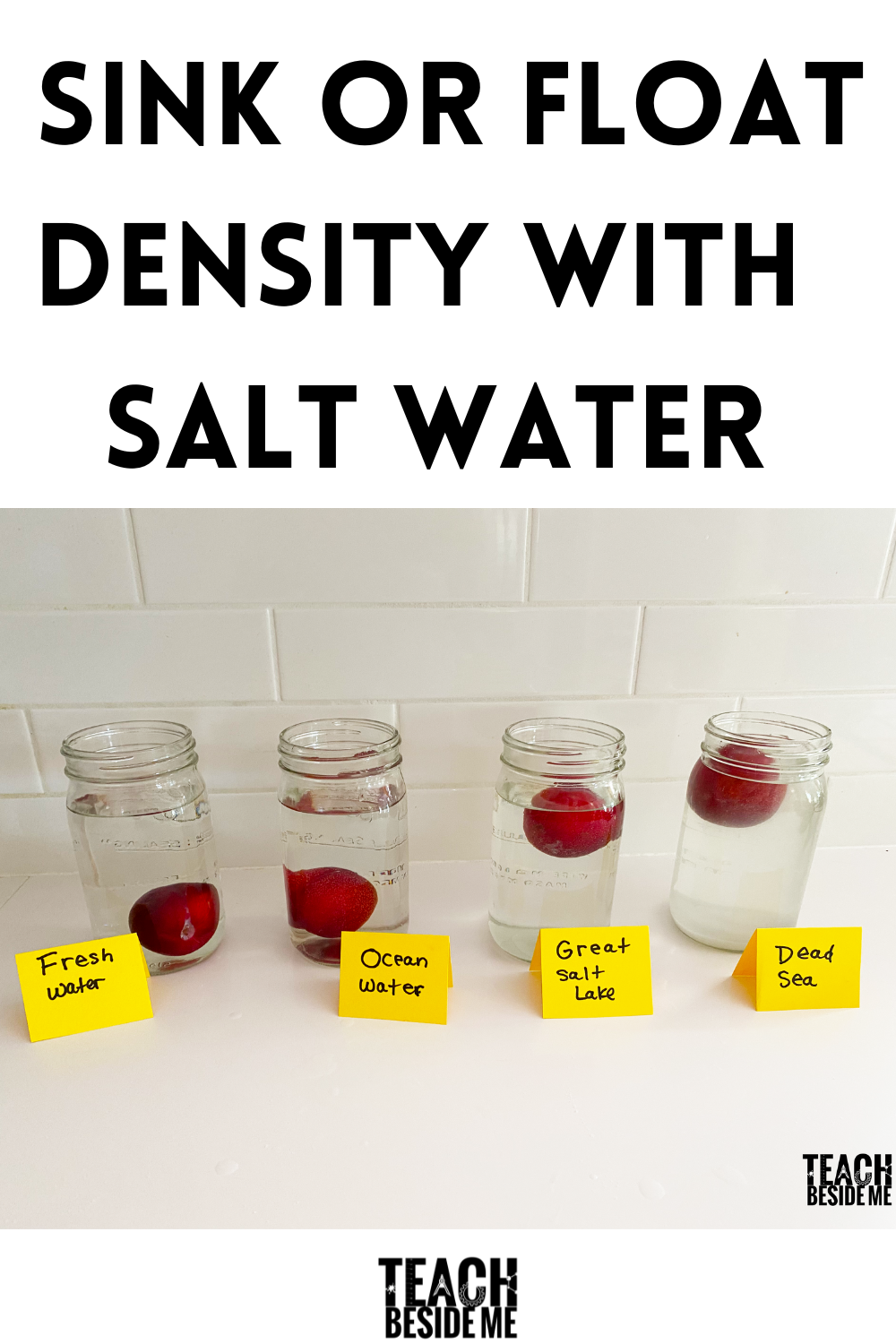
Salt Water Density Experiment– Test the density of different quantities of salt water.
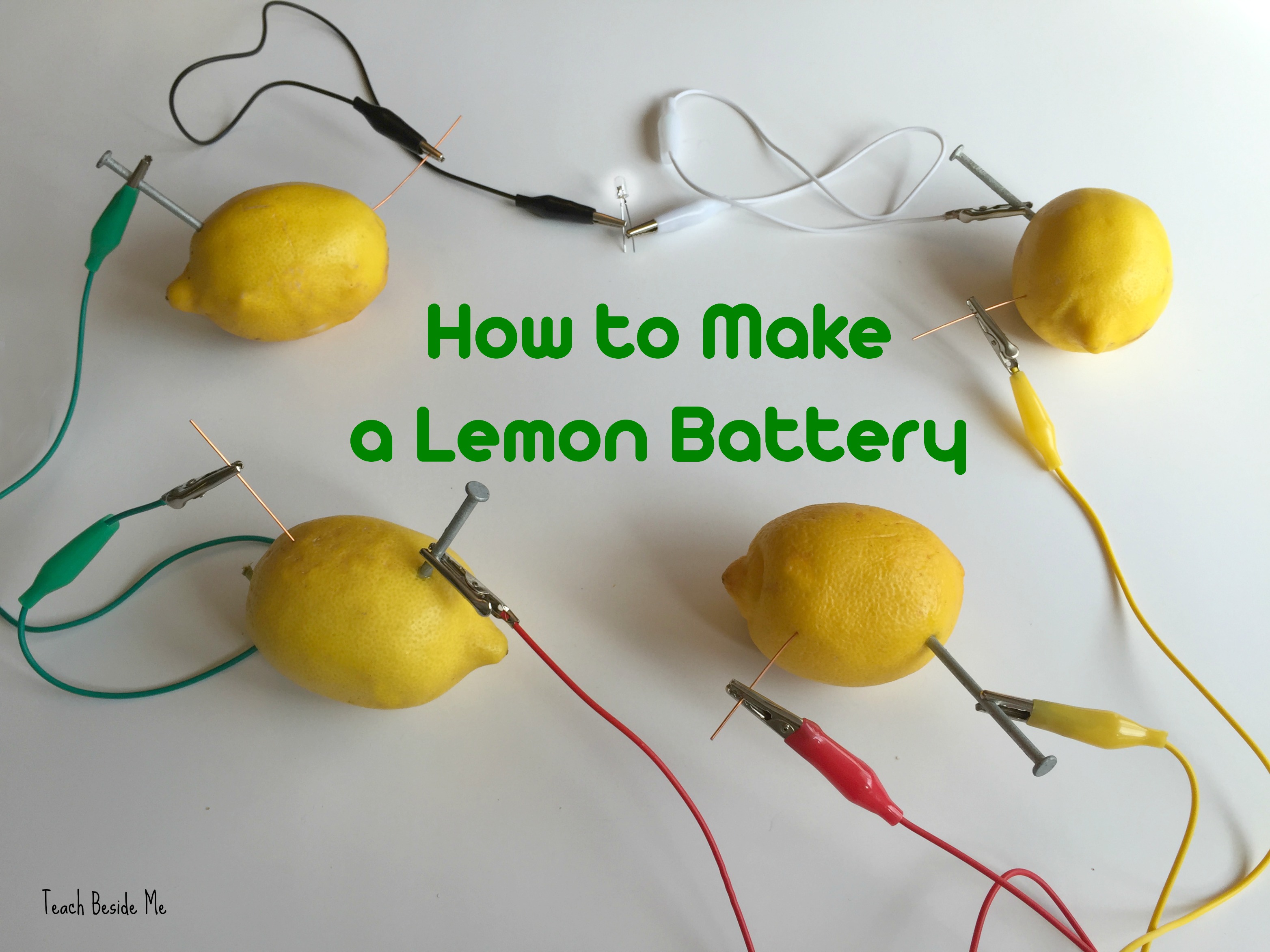
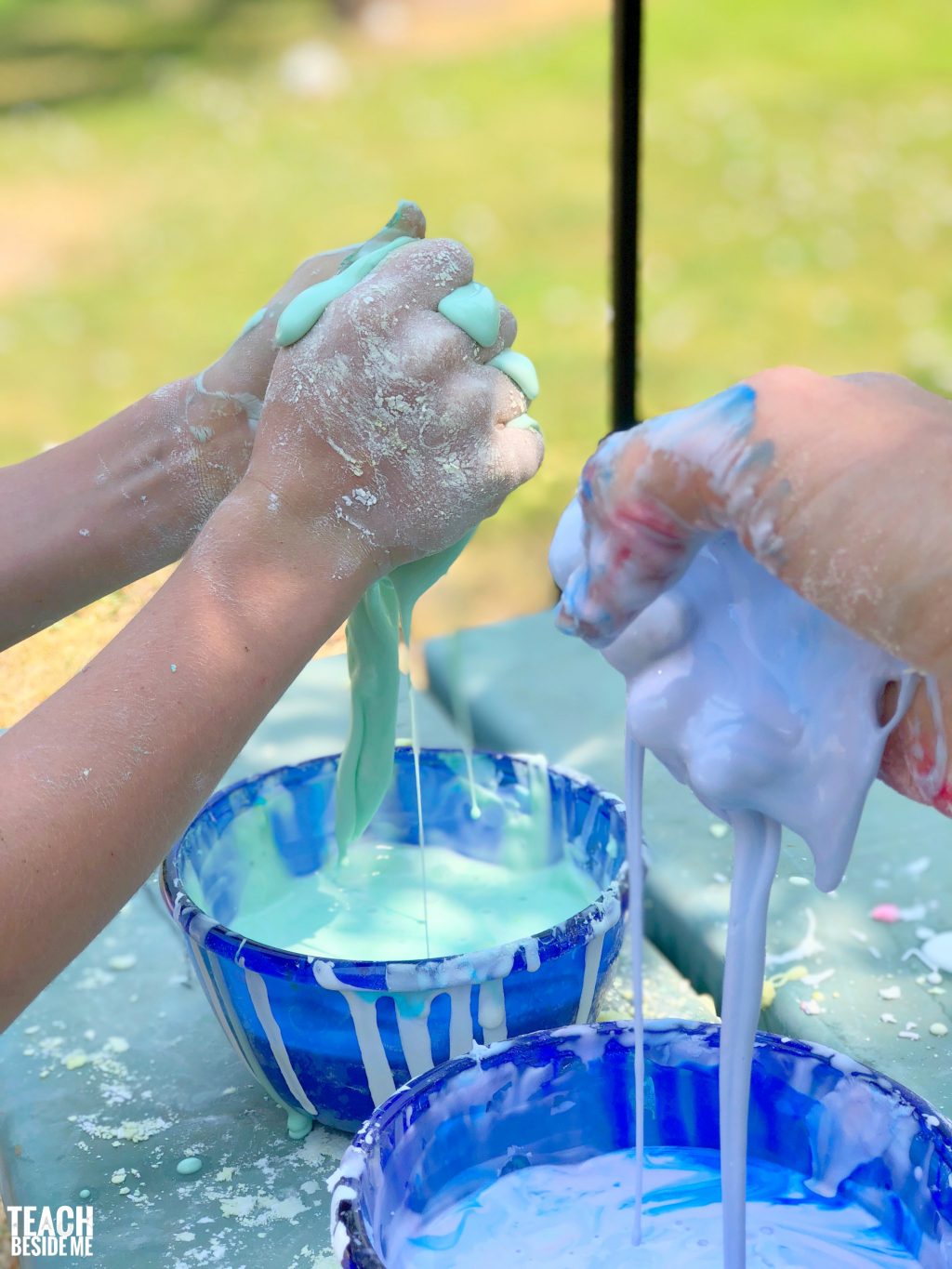
Make some Oobleck using just cornstarch and water.
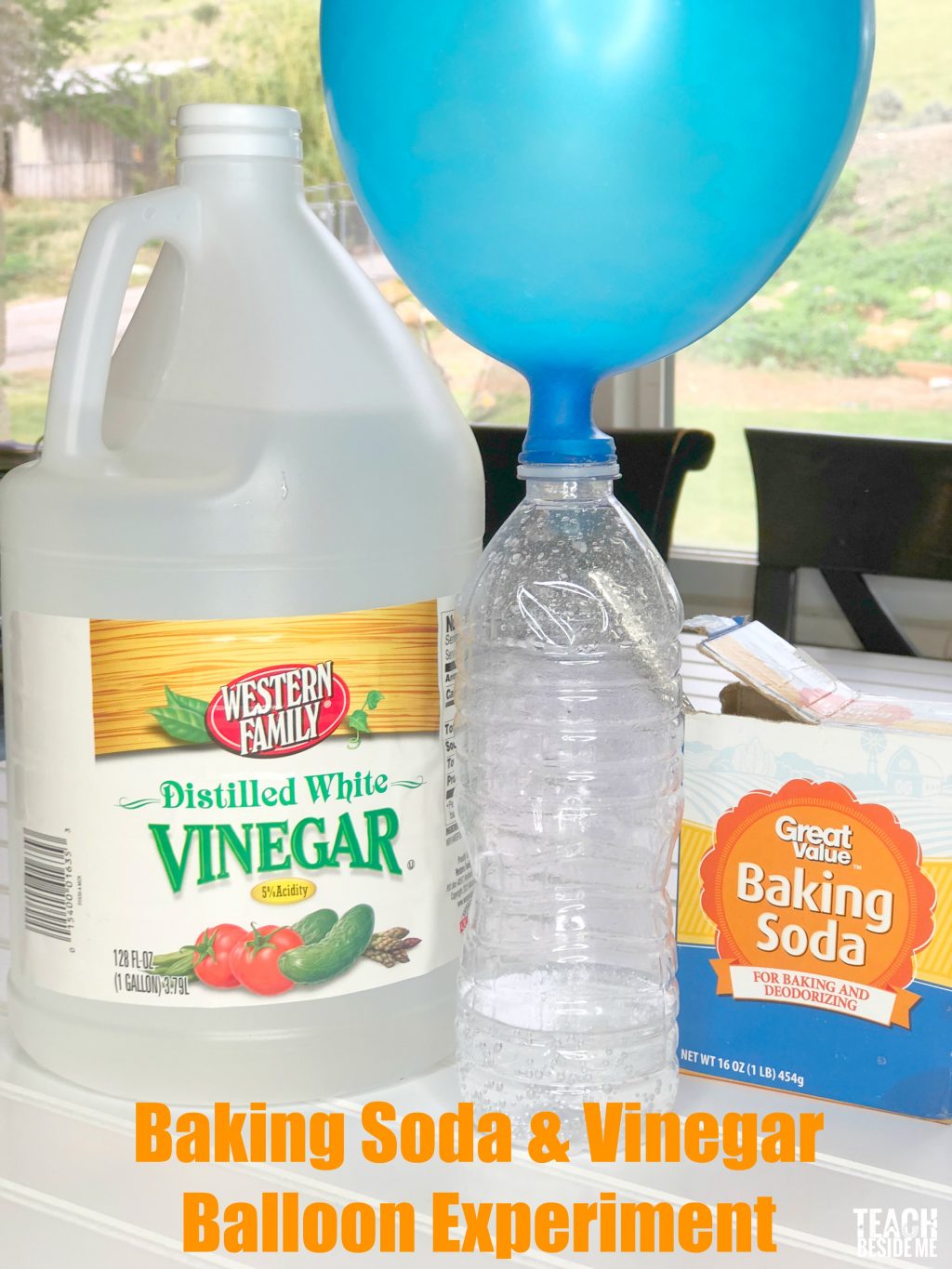
Inflate a balloon when you create carbon dioxide gas with a reaction between baking soda and white vinegar.
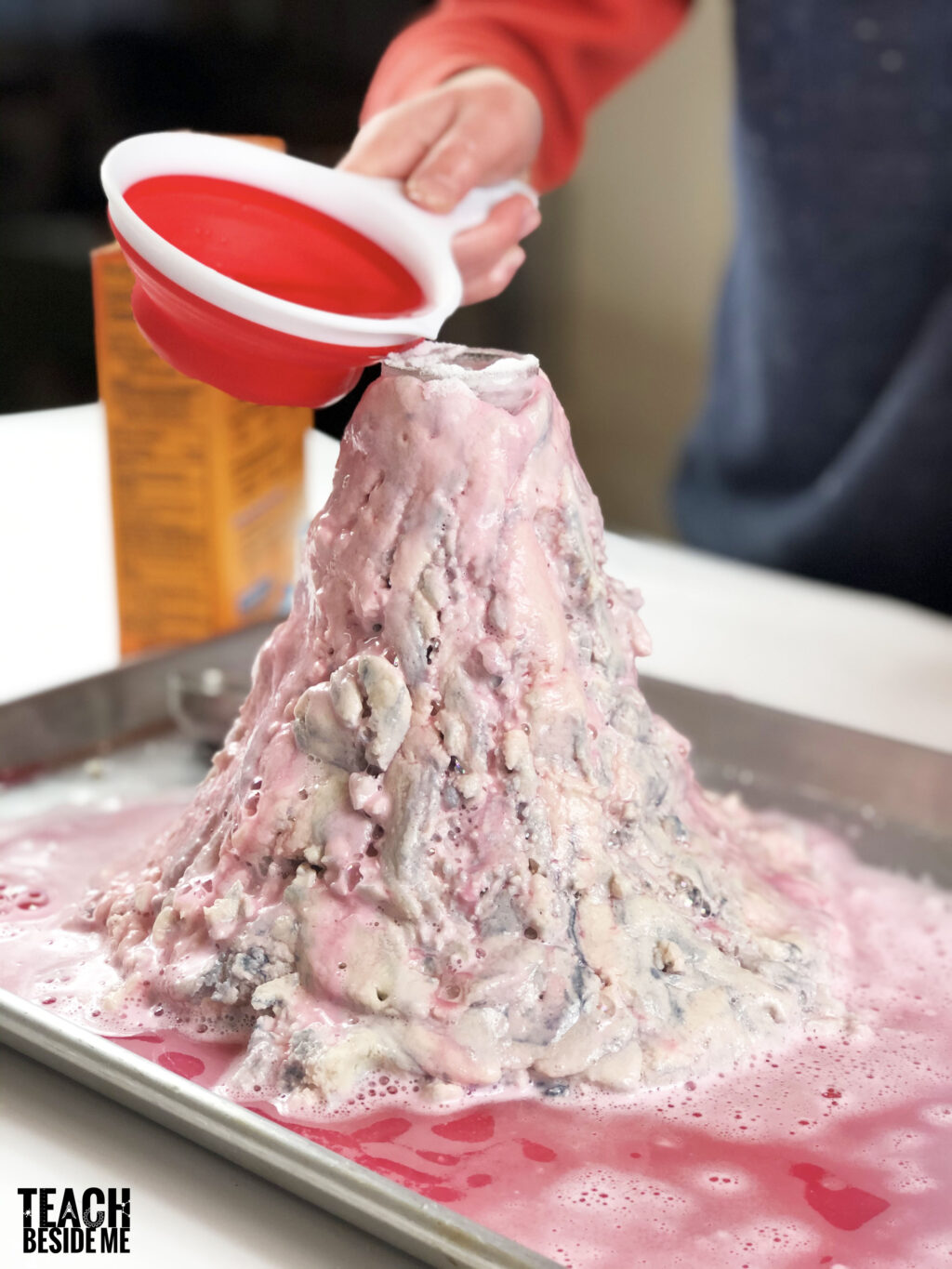
Build Homemade Volcanoes with ingredients straight from the kitchen.
More fun Kitchen Science Ideas From around the web. . .
Gummy Bear Science from Teach Preschool
Edible Mars Rock from The Fairy and the Frog
Dissolving, Expanding & Bouncing Eggs from Blue Bear Wood
50 Kitchen Science Activities from Science Sparks
Candy Cane Science Experiment from Preschool Powol Packets
Also be sure to check out my post with Super Simple Science Experiments!
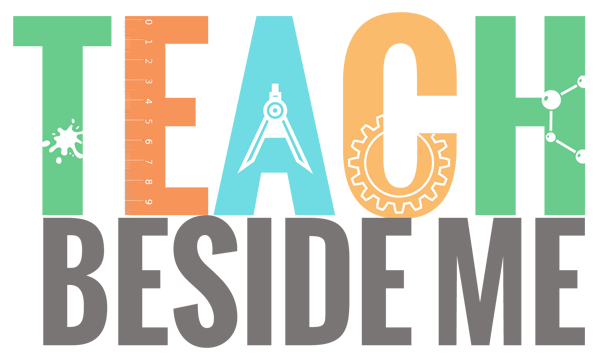



Ooh I love the yeast experiment… must try that next time we make bread!
Love all the experiments that you can do at home. So much fun. Thanks for including us xxx
Thanks so much for including Science Sparks xx
Thank you for such wonderful ideas! Entelechy Education, LLC has just begun an EnteleTrons™ Explorers Club and we added your website to our Experiments section: http://www.entelechyed.com/enteleclub_experiments As you can see, it is a work in progress. Sign up for our mailing list to see what else we add!